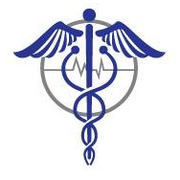
Allergies are the sixth-leading cause of chronic illness in the U.S., affecting about one in 50 million people. They can be difficult to pinpoint, particularly because they can be caused by so many factors, from pet dander to pollen and foods to dust mites. If you suspect you may have allergies, you’ll want to get an allergy test from your local medical clinic. Here’s what you should know about allergy testing and how it can help you.
Guide to Allergy Tests
Who Needs to Be Tested?
People of all ages can experience allergies, and medical clinics can test for allergies safely in children and adults. If you experience cold-like symptoms that last for more than a week at about the same time every year, you probably have an allergy. You may also consistently wake up with a stuffy nose, sore throat, coughing, or wheezing. This may indicate an indoor allergy such as dust mites or mold. Additional symptoms include asthma, inflamed or irritated nasal passages, skin rashes, or adverse reactions to food, medications, or insect stings. This can include difficulty breathing, vomiting and nausea, and rashes. If you experience these systems, you should visit a medical clinic for allergy testing.
What Does Allergy Testing Involve?
 When you arrive at a medical clinic for allergy testing, you’ll fill out a complete medical history form to indicate your essential data, including age and known health conditions, as well as how long you’ve been dealing with your symptoms and when they occur.
When you arrive at a medical clinic for allergy testing, you’ll fill out a complete medical history form to indicate your essential data, including age and known health conditions, as well as how long you’ve been dealing with your symptoms and when they occur.
The doctor at the medical clinic may then administer a blood or skin test. With a skin test, the provider will expose a patch of skin to a suspected allergen and observe the results. In some cases, they may need to inject the allergen into the skin. Usually, reactions occur within 20 minutes. With a blood test, the blood sample is taken to a lab and tested for specific antibodies. Because it is done in a lab and not directly, it can take up to a few weeks to get results. Blood tests only require a single prick and can test for multiple allergens simultaneously.
What Do the Results Reveal?
Skin tests can reveal food allergies, hay fever, allergic asthma, and dermatitis. Doctors can also use these to diagnose allergies to insects, penicillin, or latex. Blood tests help diagnose allergies to substances such as mold, pollen, animals, foods, and certain medications.
 If you or a loved one need allergy testing or medical care now, visit Superior Urgent Care in Keller and Saginaw, TX. Tarrant County’s best medical clinic and emergency care center, they provide exceptional, personalized care for patients of all ages and backgrounds. Call the Keller clinic at (817) 576-4050 to schedule an appointment today. You can also call their new location in Saginaw at (817) 386-4505. Visit their website to learn more about this family medical practice and all they have to offer. You can also stay up to date by following them on Instagram.
If you or a loved one need allergy testing or medical care now, visit Superior Urgent Care in Keller and Saginaw, TX. Tarrant County’s best medical clinic and emergency care center, they provide exceptional, personalized care for patients of all ages and backgrounds. Call the Keller clinic at (817) 576-4050 to schedule an appointment today. You can also call their new location in Saginaw at (817) 386-4505. Visit their website to learn more about this family medical practice and all they have to offer. You can also stay up to date by following them on Instagram.
About the Business
Have a question? Ask the experts!
Send your question

